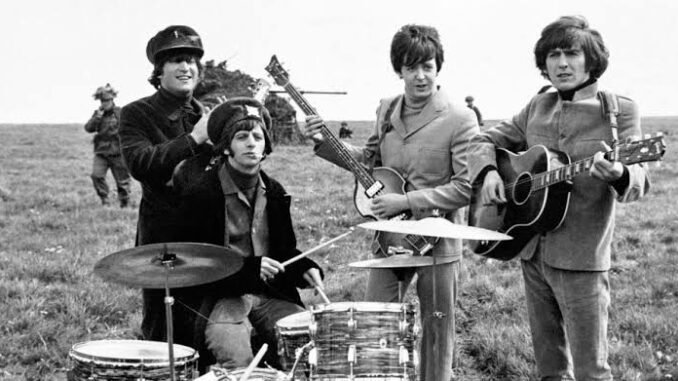
When I questioned Tom Petty in 2010 about his friend and bandmate from the Traveling Wilburys, the late Beatle George Harrison, he said, “George was the greatest guy.” In addition to being humorous, he was also tough. He didn’t put up with idiots. I still miss him a lot since I loved him like a brother. Ringo Starr mirrored Petty’s views a few years later. In 2014, I was informed by Starr that George was a handsome man. “I loved making music with him, and he loved making music.”
On February 25, Harrison, who passed away in 2001, would have turned 75. Not only his friends and peers, however, have positive memories of him. The Beatle who was regarded as “the Quiet One” during the band’s heyday in the 1960s has been anything but in the years since his death. A number of beautiful box sets, a deluxe, expanded edition of his memoir, a documentary directed by Martin Scorcese, and, most recently, a spiffy, vinyl and video edition of the tribute concert his all-star friends threw to celebrate his life, one year to the day after his death, are just a few of the estate-sanctioned releases that have helped burnish his memory recently.
But all you have to do is look at the music charts to gauge the actual impact and everlasting quality of George Harrison’s songs. Harrison’s music has remained at the top of the charts ever since his solo and The Beatles’ catalogs were made available on streaming services in late 2015. You only need to glance at the music charts to gauge the actual impact and timeless quality of George Harrison’s songs.
Only Harrison’s most ardent supporters are probably surprised by this. However, “Here Comes the Sun” and “Something” have consistently outperformed “Hey Jude,” “Let It Be,” and “Yesterday,” which are long regarded as mainstays of the band’s legendary discography. John Lennon’s “Imagine,” “Instant Karma,” and “Jealous Guy” are frequently overshadowed by Harrison’s solo songs, which range from the mega-hit “My Sweet Lord” to lesser-known gems like “What Is Life” and “Handle With Care,” the signature song of Harrison’s band with Petty, Bob Dylan, Roy Orbison, and Jeff Lynne. He also tops the charts with Ringo Starr’s “It Don’t Come Easy,” Paul McCartney’s “Maybe I’m Amazed,” and “Band On the Run.”
Even though older, baby boomer fans have been the main audience for the Beatles-themed SiriusXM channel, if callers to the channel’s talk shows and request lines are any guide, Harrison’s chart rankings have undoubtedly been influenced by the generations that have flocked to online music, specifically millennials and their Generation X and Y counterparts. Harrison, who was formerly known as the “dark horse,” has become the mysterious favorite of listeners who are unfamiliar with The Beatles’ and their individual canons, with Lennon as a long-gone, but beloved, and legendary historical figure and living legends McCartney and Starr appealing to a decidedly older audience.
The ageless quality of Harrison’s music, particularly the work he produced in the latter 15 years of his life, makes him an obvious choice for the following generation of admirers, according to many who knew and loved him. Another Traveling Wilbury bandmate, Jeff Lynne of ELO, who also produced Harrison’s music, told me, “He wrote brilliantly original songs and played the greatest slide guitar.” “Honestly, working with George was the best opportunity of my life.” The best chance I ever could have imagined. In fact, their collaboration helped restore Harrison’s reputation as a solo performer following a difficult 1970s and 1980s and laid the groundwork for his ongoing success.
Harrison and Lynne were practically inseparable for ten years. They formed the Traveling Wilburys with Dylan, Petty, and Orbison; they recorded Harrison’s comeback album, the worldwide chart-topper “Cloud 9,” which included the streaming classics “Got My Mind Set On You” and “When We Was Fab.” They also found time to work on multi-platinum records by Petty and Orbison, among others. Lynne then received the call of a lifetime in 1994 when he was asked to create “Free As A Bird” and “Real Love,” the Beatles’ first new songs since 1970, for the group’s “Anthology” project.

Be the first to comment